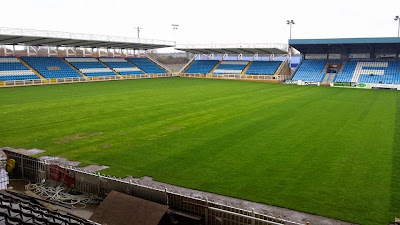Thirty Years On.....
 |
| Peter Smith, photo courtesy of Eric Lorriman |
With the Championship done and dusted, the State Express Challenge Cup could now take centre stage and a town that had seemed pretty excited ever since the semi-final win was now reaching fever pitch. In the weeks leading up to the final, the tension gradually mounted as supporters bought tickets and organised accommodation and travel arrangements for the big weekend. The same was true for the players and committee, as the squad was fitted out for suits, hotels were booked and places finalised for the Wembley line up.
The team line-up had been fairly consistent throughout the second half of the season, but there were a couple of selection posers for coach Allan Agar to consider. The battle for the number six shirt had been more of less won by teenager Alan Banks over Phil Johnson who had spent a part of the season injured. The rest of the backs picked themselves, so there was no place for back up scrum-half Neil Pickerill, nor for promising youngster Richard Marsh who had plenty of game time in the lead up to the final. Agar sprung a surprise by naming another 17 year old, Paul Lyman, on the subs bench. The Cup final would be only the 9th appearance of Paul’s nascent career.
 |
| Ray Handscombe, photo courtesy of Eric Lorriman |
In the forwards, with Mick Gibbins, Ray Handscombe, Steve Hankins, David Hobbs and Peter Smith as fixtures in the team, there was one spot up for grabs which in the end went to recent recruit Tim Slatter, which was a bit of a surprise too. Gary Siddall, favoured in the quarter and semi-finals, earned a spot on the bench, and veteran Keith Bell, who had filled in various positions in the course of the season also disappointingly missed out.
Rovers’ opponents Hull FC made their own preparations for the final, with the Rugby League First Division Championship safely on the sideboard. Having won the Challenge Cup in 1982 on a replay against Widnes, they were also the holders of the Cup. One game away then from a notable double, an achievement not often seen in rugby league (until Wigan managed it six years running in the early nineties). Needless to say, everybody who was anybody in rugby league, as well as every bookmaker in the country, had Hull down as the overwhelming favourites to win, and quite rightly so. A fearless bunch of lads in blue and white jerseys had other ideas.
 |
| Mick Gibbins, photo courtesy of Eric Lorriman |

No comments:
Post a Comment